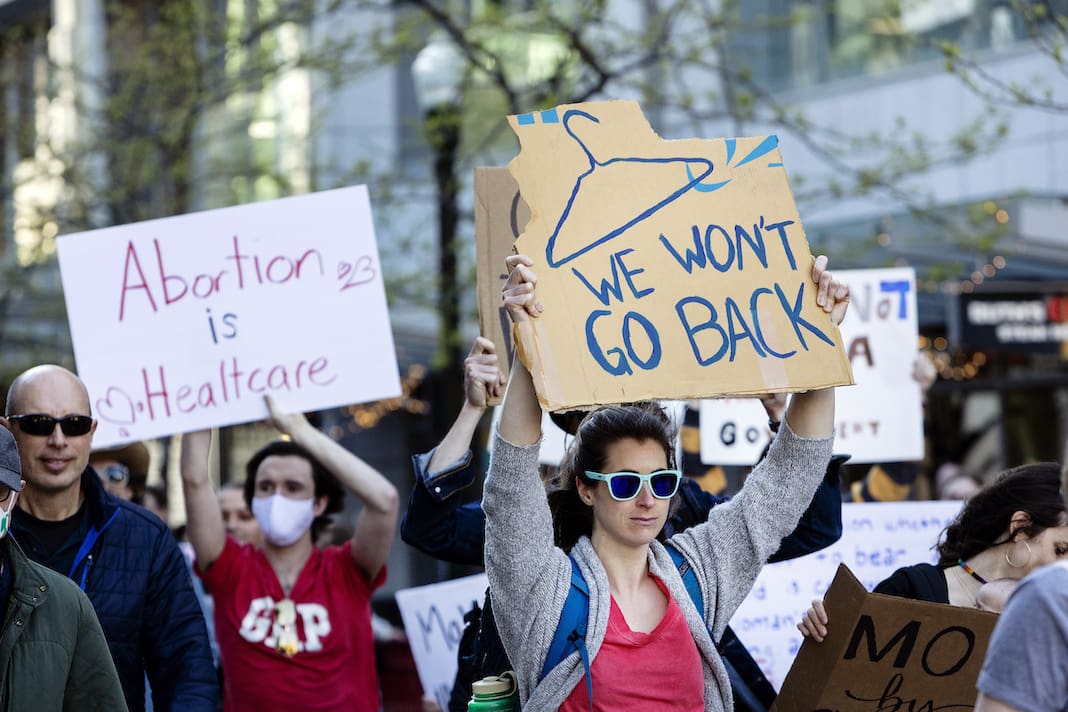Coronavirus abortion bans put bigger burdens on health care providers
Alabama, Arkansas, Iowa, Kentucky, Ohio, Oklahoma, and Texas have all tried to ban or seriously limit abortion access during the pandemic.

Several governors are using the coronavirus crisis to try to restrict or entirely ban abortions, making the unscientific claim that abortion is “nonessential.” Doctors’ groups, including the American Board of Obstetrics and Gynecology, have pushed back against the claim, noting that abortions are not only essential but also time-sensitive. Clinics are fighting the bans in court, with some success.
However, the bans aren’t just stopping people from getting abortions in their home states. They’re ramping up demand for providers in states where abortion remains widely available. If that happens, people may not be able to get abortions until later in pregnancy — or they may not be able to get them at all.
Alabama, Arkansas, Iowa, Kentucky, Ohio, Oklahoma, and Texas have all tried to ban or seriously limit abortion access during the pandemic. Many people seeking abortions have been forced to look outside their own states — and that can take a lot of time, pushing abortions later in pregnancy.
One Texas woman who spoke to the New York Times said she had contacted six clinics in four different states, and now, at 18 weeks pregnant, was considering making the nine-hour drive to Wichita, Kansas, to receive abortion care there.
However, clinics in Kansas are already seeing a dramatic uptick in demand that may begin to tax their ability to handle out-of-state patients.
Julie Burkhart, who manages the Trust Women clinic in Wichita, which performs both medical and surgical abortions up to 21.6 weeks, said, “We’ve seen more women coming sooner than they would have because they’re scared they won’t be able to access the services later.” Burkhart indicated the clinic had seen nearly three times as many patients last month as it had in March 2019.
The increase in demand for abortion services isn’t limited to Kansas. Planned Parenthood in New York is expanding telemedicine services, as it’s seen an increase in people seeking abortions. Hospitals in New York that are taxed with coronavirus patients are referring people to standalone nonhospital providers for the procedure.
In Alabama, where the federal courts recently blocked a coronavirus-related abortion ban from taking effect, providers are reporting a disruption in abortion services because of increased need. Alabama has three clinics that perform abortions, but neighboring Mississippi only has one.
One clinic owner in Alabama noted she’s seen increased traffic from surrounding areas. That’s in spite of the fact that Alabama has a 48-hour waiting period, which means people have to make two trips or stay near a clinic between their first visit and their second.
Even before bans began to take effect, the Guttmacher Institute had already examined the issue of clinician shortages. Health care workers are, of course, at greater risk for contracting coronavirus, and Guttmacher noted that this could create a shortage of clinicians, increasing the wait times for patients seeking reproductive health services.
Some people are able to wait and travel, but that still can mean receiving an abortion later in pregnancy, which can be much more expensive. But it isn’t just a matter of increased cost for the procedure. But traveling to another state can often mean taking days off work and having to obtain child care and lodging. Moreover, not everyone will be able to make such a trip.
Abortion laws are already a state-by-state patchwork. Because stay-at-home orders also vary across states and are subject to change in the wake of court decisions, it is difficult for patients to guess whether to wait out a ban and get an abortion in their home state once orders are lifted. Guessing wrong could result in patients passing the legal time limit in their state to get a procedure and being unable to obtain an abortion at all.
If clinics in states that do perform later abortions are faced with a large number of out-of-state patients, they may see a demand for abortions that they can’t meet.
Once clinics begin to fill, people could see appointments for reproductive health care pushed back to quite late in pregnancy, and the number of states that provide abortions after 24 weeks of pregnancy is small.
The continued GOP push to restrict abortions during the pandemic is going to keep forcing people to look elsewhere for the health care they should be able to get right at home.
Published with permission of The American Independent Foundation.
Recommended

Trump leaves door open to banning medication abortion nationwide
Donald Trump is planning to release more details in the weeks ahead about how his administration would regulate access to medication abortion, according to comments he made during a lengthy interview with Time magazine published Tuesday.
By Jennifer Shutt, States Newsroom - April 30, 2024
Ohio doctors fear effects of emergency abortion care case set to go before U.S. Supreme Court
A federal law that allows emergency departments to treat patients without regard to their ability to pay will be under U.S. Supreme Court scrutiny this week, and Ohio doctors are concerned about the case’s local impact on emergency abortion care.
By Susan Tebben, Ohio Capital Journal - April 23, 2024
Biden on abortion rights: President expects to give speech Tuesday on new Florida 6-week ban
‘Having the president of the United States speaking out loud and with confidence about abortion access is a great thing’
By Mitch Perry, Florida Phoenix - April 22, 2024








































































